“I Sit and Pray to God to Get There Alive”
Most of the public transport in Russia is worn out and accidents are becoming more frequent. The situation is the worst in Astrakhan
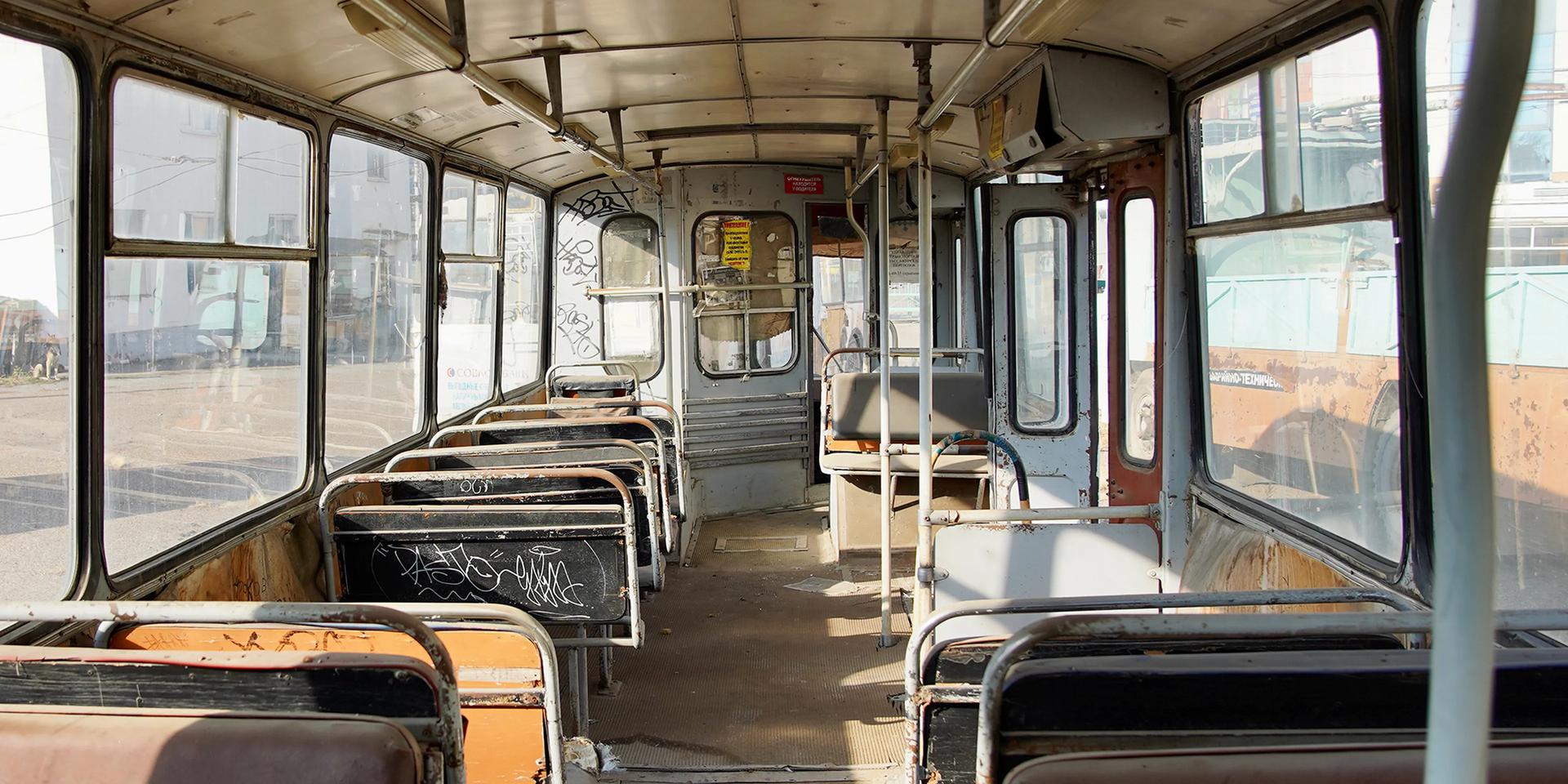
“Every Russian citizen, wherever they live, must be provided with reliable and safe transport links. Let me remind you that this requirement is directly enshrined in the Constitution of our country,” – said President Vladimir Putin at a meeting of the Presidium of the State Council in October this year. To test how safe and accessible Russian public transport really is, IStories analyzed the data on this matter and went to Astrakhan, the city that was one of the first in the country to launch trams and is now declared the worst in terms of the quality of passenger traffic.
"The realm of marshrutkas"
In 2020, on a highway near Astrakhan, a marshrutka (routed taxicab, minibus – Ed. Note) with 16 people on board overturned: while driving, the car's front wheel came off. Almost all the passengers were hospitalized with serious injuries: craniocerebral trauma and rib fractures. This accident is just one of seven thousand that happened due to technically faulty vehicles on roads in Russia in 2020 and led to casualties. According to State road safety inspectorate [the traffic police], more than a thousand people died in these accidents. Whilst in 2010 the share of such accidents in the total number was less than 1 %, in 2020 it was already 5 %.
The number of road accidents involving public transport is increasing as well. The situation with accidents in the field of bus transportation (which is the most common means of public transport in Russia), according to the traffic police, has not changed for the better since at least 2016. During this period, the number of road traffic accidents with victims involving passenger buses increased by 33 %, the number of deaths in these accidents – by 8 %, the number of injured – by 29 %. At the same time, the number of accidents that happened due to the fault of the bus driver violating the traffic rules increased by 5 %.
The majority of Russians regard marshrutkas as the most dangerous means of public transport. However, presently they remain the only way for the citizens of Astrakhan to get around the city. This year Astrakhan took the last place in the rating of Russian cities in terms of the quality of public transport. This is an example of a city in which the authorities completely relinquished their powers of transporting the citizens. The bankrupt municipal enterprises with trams, trolleybuses and buses were replaced by private carriers – and now the city is called the "realm of marshrutkas."
"If you want something extreme – move to the village of Poymenny"
The collapse of public transport has affected those who live beyond the city limits the most. The village of Poimenny, with the population on about two thousand people, is a 20-minute drive from Astrakhan. The private carrier's bus has stopped working and residents now take hours to get to the city. They spend a long time trying to catch a ride at the exit from the village or walk three kilometers across the steppe to the highway where marshrutkas from other settlements stop.
This is exactly how Nail Irkanaliev, a local resident, has to get to the city; he’s been trying to get a new bus for the village for two months. “It was an old bus, but it suited all the locals,” – says Nail. – It was worn out more than on average, but the carrier tried to repair it with all his might. The transport was old, but it made it possible to carry out the transportation day after day without any delays."
A worn-out PAZik (PAZ-3205, a common midibus model made by the Pavlovo Bus Factory – Ed. Note), which was used by the residents of Poimennoye, often remains the only available transport for people in other Russian villages and cities. According to Rosstat, public transport in the country is more than half worn out, and 46 % of buses in Russia have been in service for more than 10 years, which much exceeds the useful life. The most difficult situation with the wear and tear of buses is in North Ossetia, Dagestan, Chechnya and in the Kamchatka Territory where the average age of the bus fleet [depots] is more than 20 years.
“As in many localities in the region now, there is practically no work in the village, so basically people go to work and study in the city. Now they are late for work, for which they receive fines. Problems with studies also occur,” – says Nail, showing the stop from which the locals used to leave for the city.
“We’ve got students here, we’ve got half of the state farm working in our city. Those who have their own transport – good for them, and what about those who don’t? My daughter works in the market, gets up at five in the morning, leaves at six, says: “I can hardly get there,” tells us a native of Poymennoye Asima, standing in a grocery store. – I mean, how are we supposed to get there? Now no one stops [to give a lift], everyone is in a hurry. It's warm yet but then the frost will hit, we don't even know how our children will commute.
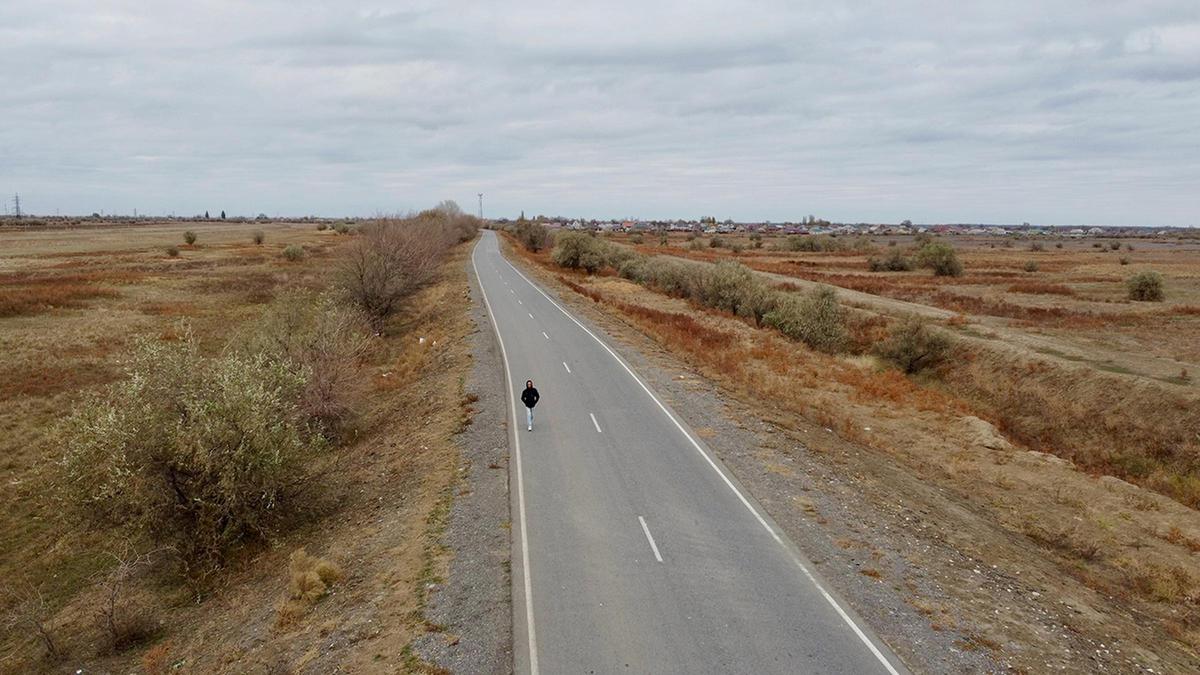
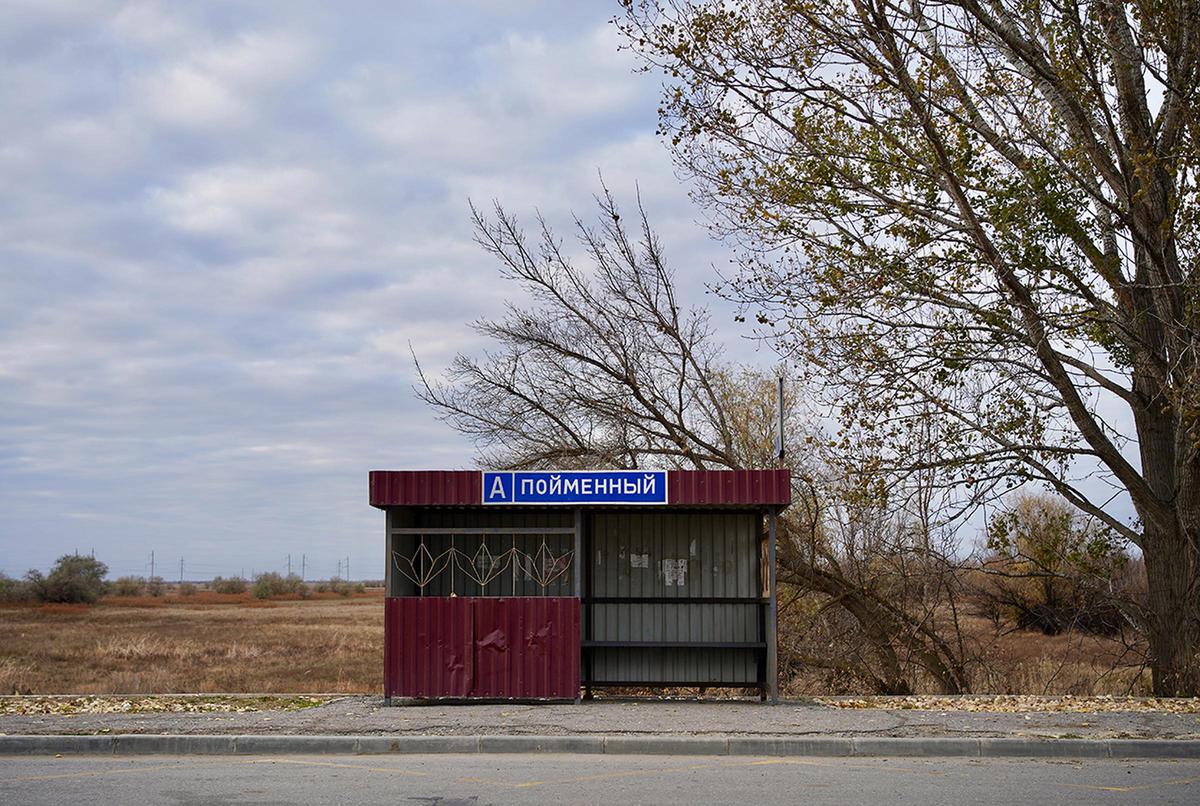
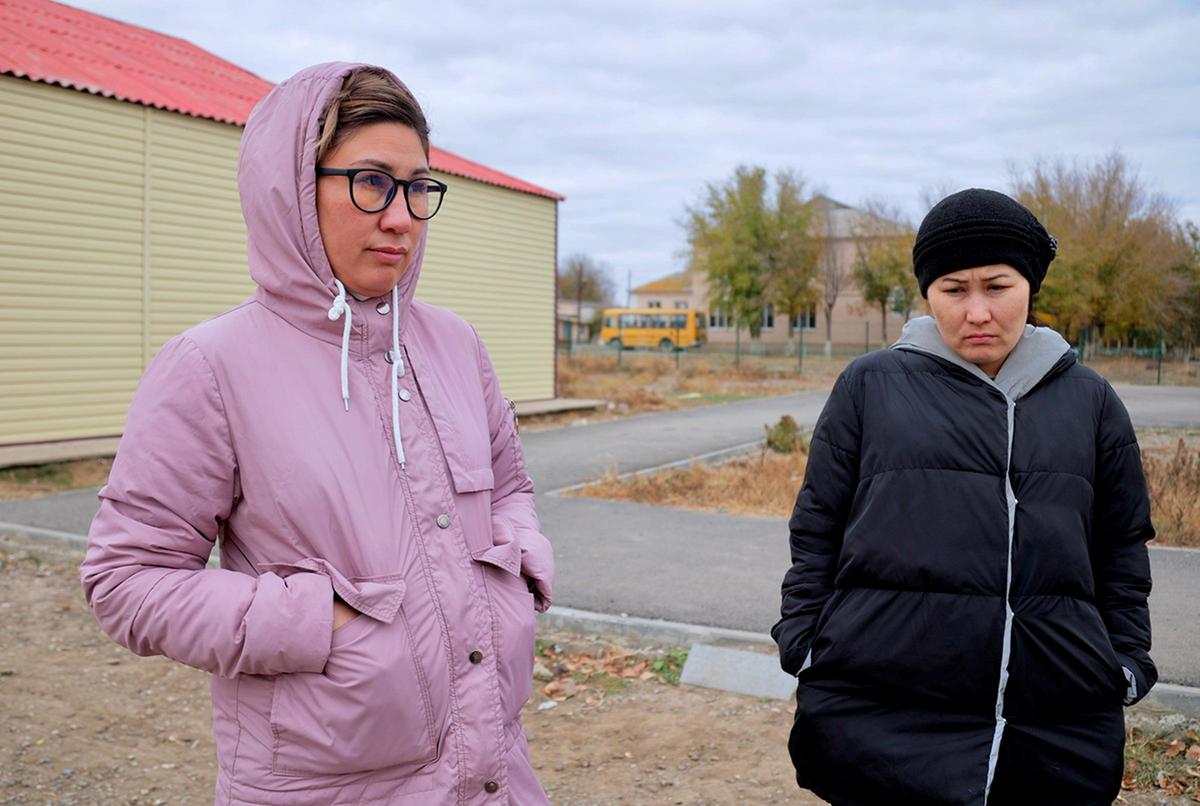
Another resident of Poimennoye, Aliya, who’s recently given birth to a child, complains that due to the absence of a bus running on schedule, she cannot find a part-time job in the city. Another problem for her is to leave the village with a baby: passing cars refuse to take passengers with children. Aliya's friend Eugenia says that she is afraid to let her niece go to the city college, because she has to walk along the road in the steppe "with dogs, wolves and foxes, which are infected with God knows what." The family's expenses have also grown: instead of 80 rubles for a bus ride, they now pay drivers [who give them a ride] or taxi drivers from 200 to 500 rubles per trip. “There’s no such money, here everyone works two or three jobs, all are shift [drive-in drive-out] workers – their husbands go far away to earn money. They all have two or three children. Not everyone has a car here,” says Evgenia.
Residents of Poimennoye were cut off from hospitals and pharmacies. "And pensioners, people with disabilities, women with children, are deprived of the opportunity to visit health care institutions: some need to see a dentist, some need a cardiologist," says Said, a member of the community council of the village. "If people cannot provide themselves with social services on equal terms with others, this is discrimination." His words are confirmed by Valentina, a pensioner who can no longer buy medicines for herself, because there is no pharmacy in the village: "We don’t go anywhere for two months, because I have a grandfather with the 2nd degree of disability, with one leg, with crutches. I have arthritis: neither legs nor hands [function properly], we can’t do without drugs ... We could go [to the town] to the pharmacy, or to buy groceries. Now I'm ordering from a nurse [from the local paramedic station]. She delivers it to me while bringing blood for tests. Apart from her, there’s no one else».
Just two months ago, there was a bus running from the village. But after the inspection, the supervisory authorities obliged the carrier – an individual entrepreneur – to install an electronic cash register and a tachograph. The carrier pointed to the fact that it was unprofitable and left the route. Nail Irkanaliev from Poymennoye believes that the residents were left without transport due to the authorities’ fault, who did not look for a way out of the situation: “At present, the state is shifting its responsibility onto private traders. But, since the expenses outweigh the income, it’s difficult for them to carry out their activities [to operate] under market conditions. If there was at least [state] support or municipal local transport, then, of course, we wouldn’t have to deal with these situations in the village. If the local government was responsible for that, people would be able to come and say: ”Listen, arrange our public transport,”because this is the elected people's government.»
“What are the people complaining about? We’re not in charge of buses,” the head of the local administration Damir Dosmukhamedov replies to “IStories”. He blames "legislation and bureaucracy" for everything: it takes time for the authorities to consider the documents of the new carrier and approve the route.
“Unfortunately, because of bureaucratic delays, people find themselves in circumstances which are close to extreme conditions,” says Nail Irkanaliev. – Even in the comments section on social networks [below the post about the situation with the bus] they wrote: "If you want something extreme, move to the village of Poimenny." According to him, apart from the lack of transport, there are also problems with water, electricity and roads: due to the poor quality of the roads, lots of mud appears in the village in times of bad weather. “People put bags on their clean shoes, walk to the bus stop, take off these bags, throw them into the dustbin and get to the city with clean shoes,” says Nail. “Unfortunately, this is the reality of the 21st century in the villages, which were left without due attention from the regional and federal authorities."
Poymenny is not the only Russian village whose residents have been cut off from the administrative center. According to Rosstat, only 63 % of rural settlements in Russia are served by buses, and their number has been declining in recent years.
"First, they got rid of trams, then eliminated trolleybuses"
In Astrakhan itself, the citizens also complain about the lack of accessible and safe transport. It disappeared from the city after the bankruptcy of municipal transport companies. “The situation with public transport in Astrakhan is more than sad, it’s depressing. And it is doubly offensive that Astrakhan was the sixth city then in the Russian Empire, where tram traffic appeared – literally a year after Moscow and Kazan. A century has passed, and that's what happened. Tram service closed in 2007. Trolleybus service – in 2017. Only these monuments, standing here with a dead weight, remind of it, – says an Astrakhan urbanist Anton Averin, pointing to an abandoned park with rusty trolleybuses. – Subsequently, the municipal bus company also went bankrupt. It turned out that Astrakhan became the only large city that was completely left without municipal public transport.”
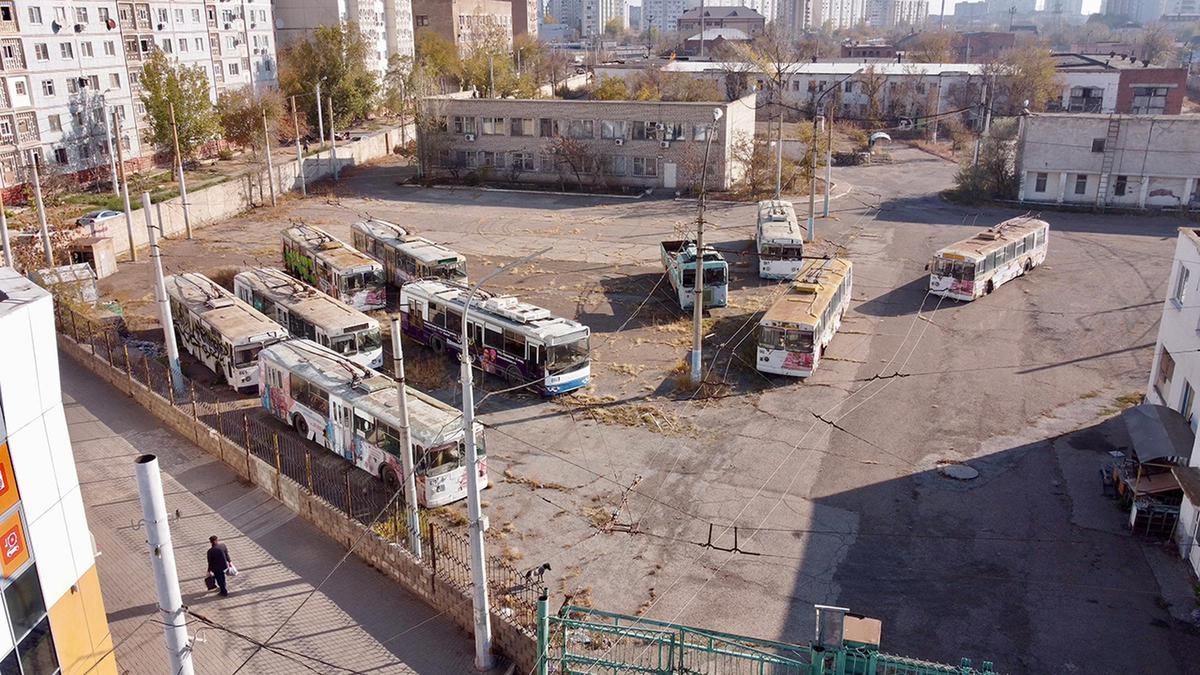
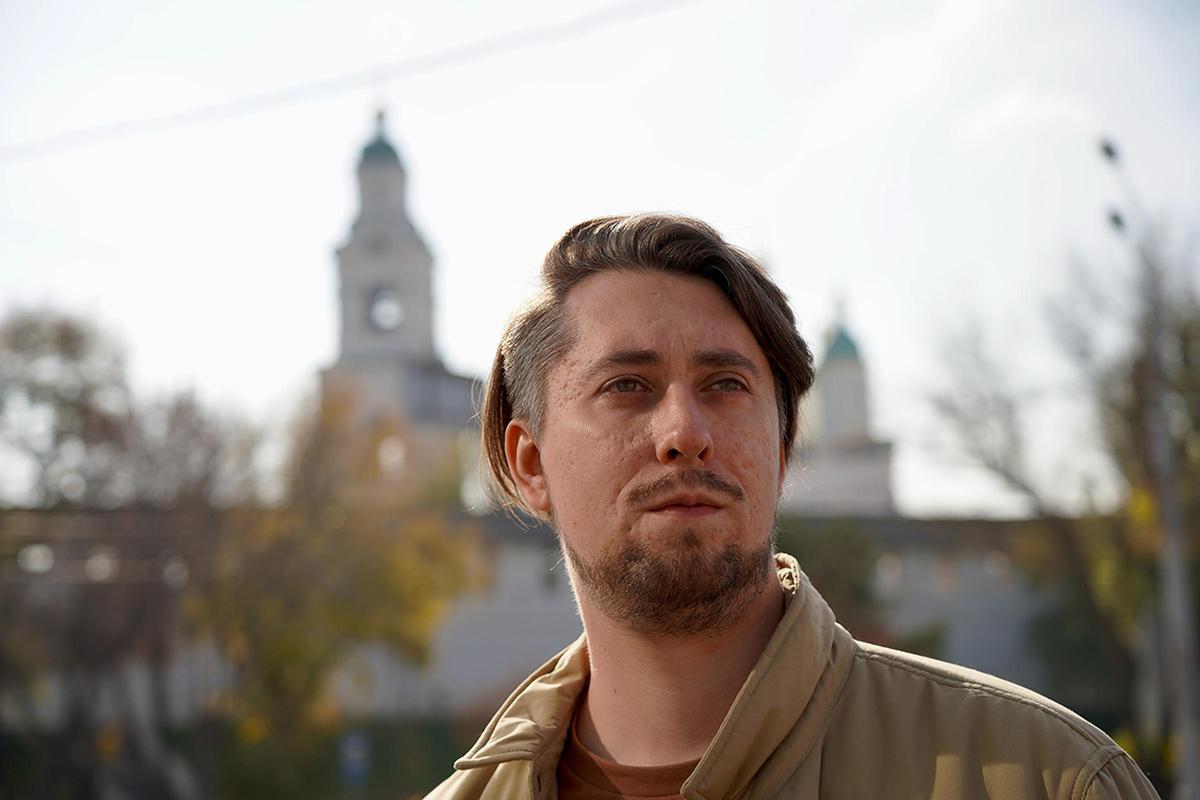
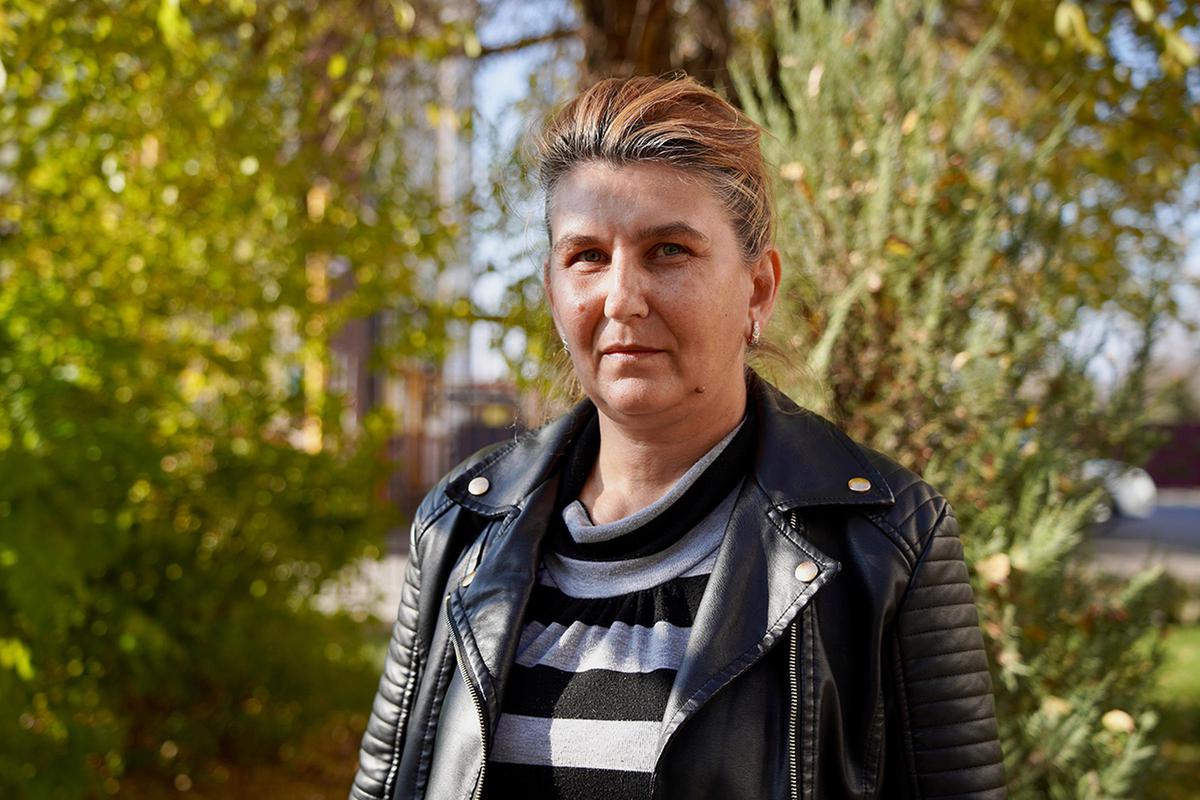
Irina Sinitsina worked as a trolleybus driver for 20 years. After the bus depot was closed, she had to get a job as a security guard in a drug treatment center: “In 2017, they shut us down and didn’t let us go on the route one day,” she recalls. – "About 200 people were left out of work. People were angry, they held pickets near the [trolleybus] depot, we had rallies. Of course, I’d like to return to my job. "
According to Sinitsina, the administration of Astrakhan, which owned the trolleybus enterprise, attributed the closure of the depot to electricity debts and the deterioration of rolling stock and contact networks. “Although they were mostly in good condition, even better than in those cities where trolleybuses still run,” – claims Irina. According to the Rosstat data for 2019, Russian trolleybuses have worn out by 70 %, which is more than any other type of passenger transport. Trams also have a high rate with 62 % wear. 60 % of tram cars last more than 25 years, 64 % of trolleybuses – more than 10 years.
Immediately after closing the depot, the authorities promised the citizens, who were dissatisfied with this decision, that they would replace the trolleybuses with electric buses. “We told them: 'First, buy electric buses. Get something new before putting away the old one. Otherwise, it will turn out that you’ll remove the trolleybuses, and there will be nothing new in return, ”says Irina Sinitsina. – And so it happened: they promised, they reassured... First, they got rid of the trams, said that they would develop trolleybuses, then they eliminated them as well, saying that there would be electric buses. But we haven’t seen any yet – it’s been already four years.”
The story of the disappearance of electric transport, which is considered the most environmentally friendly and safe, is not unique to Astrakhan. Over the past 20 years, of all types of public transport in Russia, trolleybuses and trams have suffered the most. By 2019, the number of passengers transported on trolleybuses decreased by 11 times compared to 2000, on trams – by eight times. Whilst in 2005 trams operated in 66 Russian cities, in 2019 there were already 60, and the number of cities with trolleybuses decreased from 90 to 85 during this time.
The story is very similar in many Russian cities. Due to insufficient funding, municipal enterprises go bankrupt, and the administrations look for ways to provide the local population with transport, while not making any effort, – says urbanist Anton Averin. – And here come marshrutkas, which at first glance look like a good solution: they don’t need to be financed, this is a private market, which supposedly comes to the aid of the population. In fact, these are just urban parasites that lure away the passenger traffic, bankrupt municipal enterprises – and in the end, only they remain [in the market]. At the same time, the service quality is absolutely uncomfortable. Not only are marshrutkas a dangerous kind of transport, they are also not in any way adapted for passengers with reduced mobility. And in Astrakhan, accordingly, all benefits and travel passes that existed before have disappeared.
According to Rosstat, half of the transport organizations that carry out land passenger transportation (with the exception of rail transport) in Russia operate at a loss. State support for transport mainly falls on regional budgets: they provide 75 % of government spending on transport development.
“After the closure [of the trolleybus depot], we were collecting signatures from Astrakhan citizens who support electric transport and got more than 23 thousand. Local authorities pretend that these signatures don’t exist. They try not to notice us, – says the former trolleybus driver Irina Sinitsina. – We’ve got marshrutkas owned by private carriers. When they want, they’ll go on the route, when they don’t want – they won’t. And we had a schedule in the depot: whether there is a passenger or isn’t – it doesn’t matter, we still have to run”.
"Everyone travels in cramped marshrutkas and is not used to seeing a person with disabilities next to them."
Most of the Russian public transport is not designed to transport people with reduced mobility: with prams or in wheelchairs. According to the Rosstat data in 2019, only 19 % of the buses in the country are equipped for their transportation.
Only in Moscow most of the buses (85 %) are equipped for such people, in other regions the percentage is no more than 48 %. In half of the regions, specially equipped transport is less than 10 %. In the Astrakhan region – only 5 %. In a number of regions, there are only few such buses: in the Karachay-Cherkess Republic, Ingushetia and the Magadan Region, for example, there is only one.
Astrakhan resident Oksana Gritsenko is raising four children, one of them, five-year-old Nastya, lives with infantile cerebral palsy (CP) and can only move around the city in a wheelchair. Due to the lack of available transport, she spends most of her life at home, and her movements are limited to one area.
“When we moved here, Nastya already had a disability, and I was choosing [housing] so that I lived on the ground floor and so that I could get somewhere on foot,” Oksana says, showing her one-story wooden house. – "We visit only doctors in the area, and if you need to go somewhere far away, we hire a taxi already, because you can't even get into public transport. Marshrutkas are not designed for this.»
According to Oksana, a wheelchair does not fit through the doors of marshrutkas and it is impossible to lift it to the entrance level alone: “To get into a marshrutka, you probably need to talk to the driver. And with all the passengers as well, so that they could stand for a while. All wheelchairs are heavy. The frame alone weighs 40 or 50 kilograms, so usually you need two strong adult men. Even if a wheelchair fits through there, it’ll take up the entire aisle. And people won’t be able to go out or go in. Only Nastya and I together will go by this marshrutka".
Oksana takes Nastya for a walk and shows the stop closest to their building. She tries to catch a marshrutka there to see if she can ride it [travel] with her daughter in a wheelchair. One of the marshrutkas stops, but almost immediately the doors close in front of Oksana. “They say: 'only if the rear door is opened,' Oksana cites the driver. "But nobody even tried to get up and open that rear door."
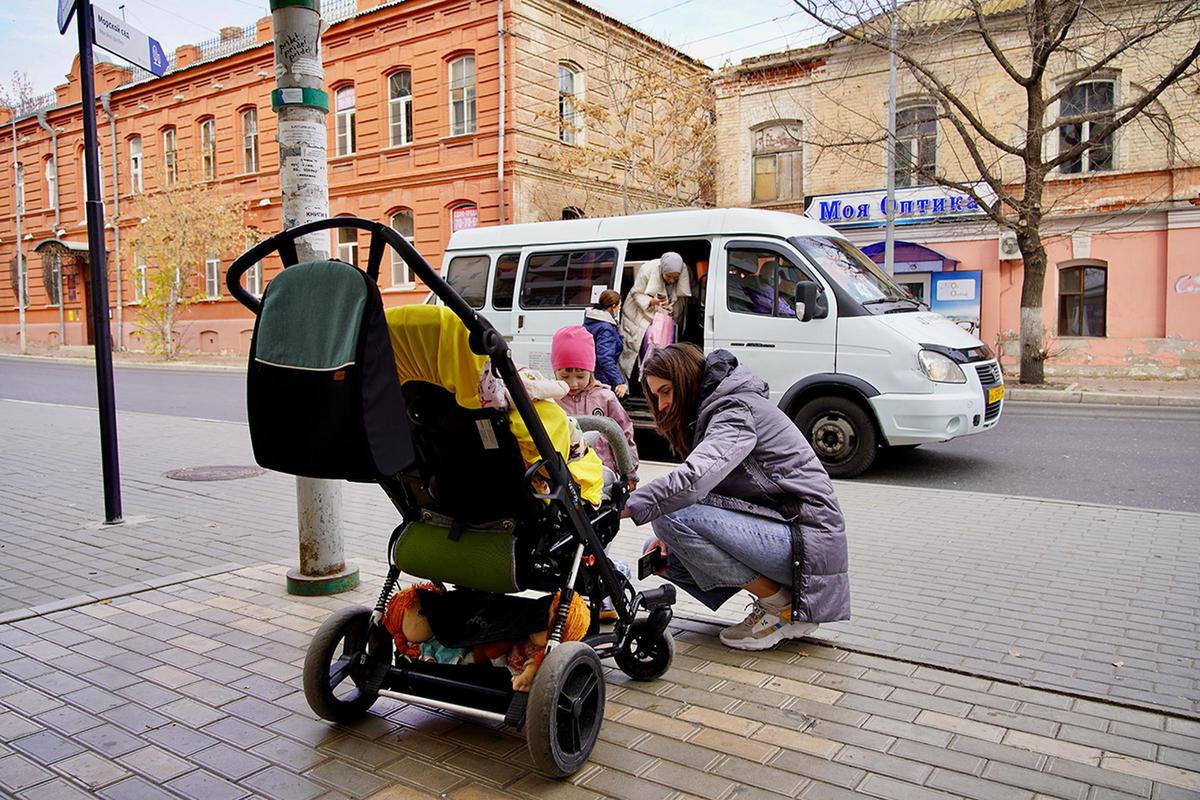
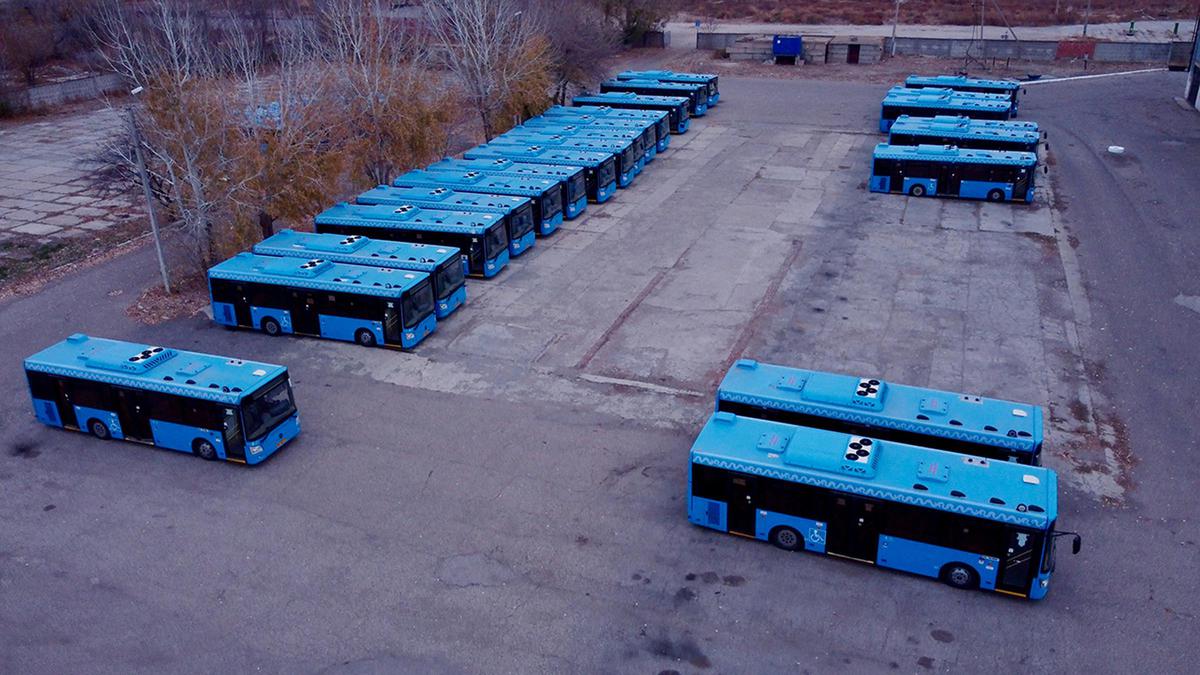
Oksana сatches the second marshrunka. “Can we fit with the wheelchair? Should we fold it? No, we won't be able to fold it, ” she replies to the driver, and he leaves: “ He says: 'Nobody goes with a wheelchair in a minibus like this.'
For the third attempt, Oksana goes to another stop: in addition to marshrutkas, there are big blue buses discharged to Astrakhan from Moscow. They walk in the city only on three routes, which do not involve most of the residents. “A couple of years ago, Mayor Sergei Sobyanin sent 50 completely new LiAZ buses from Moscow, but, unfortunately, they were also leased to a private entrepreneur and put up on routes where they would not compete with marshrutkas,” – says urbanist Anton Averin concerning these buses. – Now there are no more than twenty on the route. The rest are either broken down, or there is no financial need to put them on the routes, although it would be a good chance to slightly improve the quality of bus transportation." According to a study carried out by SIMETRA, only 1 % of vehicles in Astrakhan are of large capacity, and only 5 % have a low floor that allows prams and wheelchairs to be brought into buses.
Oksana manages to drag a wheelchair with Nastya into one of such buses: for this she needed the other passengers’ help. “We got into this bus, which has a platform for wheelchair users. But only our wheelchair could fit there. And if there is still a child in it, they’ll have to get up somewhere in the doorway, it’s unsafe. At rush hour it will be unrealistic to squeeze into this bus, because it is all packed, – says Oksana about her impressions. – It turns out that due to the fact that there is no accessible environment, we most often sit at home. In Astrakhan, people are not used to meeting wheelchair users. Everyone travels in cramped marshrutkas and is not used to seeing a person with disabilities next to them.”
"At eight p.m. you will neither go nor come anywhere"
Even those Astrakhan residents who can get around the city on their own are not satisfied with the work of private marshrutkas. One of the problems is the technical condition of the vehicles. “The vehicles creak, doors open and sometimes they don’t, sometimes there’s a seat, sometimes there’s none, the upholstery is all tattered – often this occurs as well. The drivers themselves are also not of the premium class. But what’s the choice? This is the country we live in, ”says Andrey, a young man at a bus stop waiting for a marshrutka. “I sit and pray to God to get there alive, because the drivers are reckless, they pay little attention to the road and talk on the phone,” pensioner Svetlana describes her experience.
“In Astrakhan all transport is private, and it’s rather a common situation for about a dozen different entrepreneurs to work on the same route. They compete with each other, consequently violate all the rules in the struggle for money and for passengers, – explains urbanist Anton Averin. – Public transport should be a basic urban service, the same as street lighting. And now it’s just business in which people are trying to earn the maximum money with the minimum of investments. Entrepreneurs don’t take proper care of their rolling stock, they save as much as possible on everything. And that’s why we get accidents due to the technical condition of marshrutkas, accidents due to the poor condition of the drivers themselves. Marshrutkas are completely different: from brand new to completely worn out with holes in the floor, with missing and lame seats.”
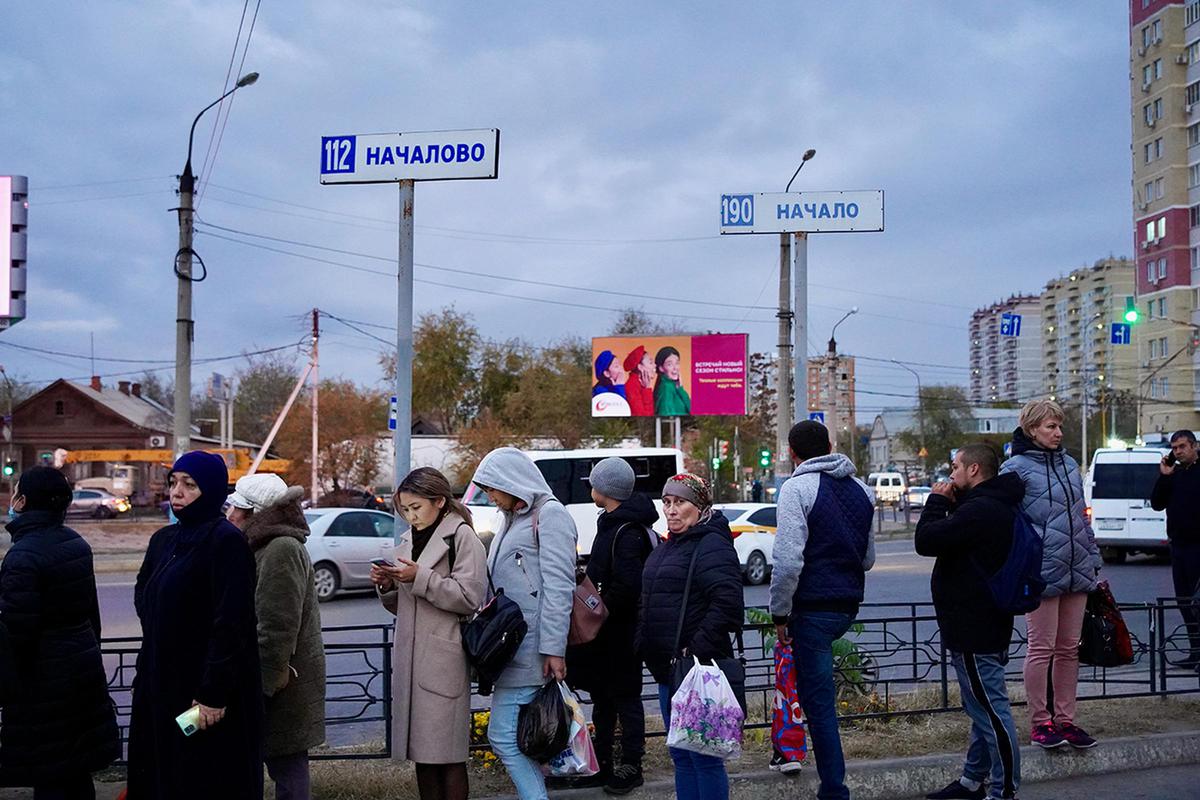
According to the urbanist [Anton Averin], the condition of the roads also affects the degree of vehicle wear. For 2020, half of Russian roads (statistics are provided by Rosstat, excluding federal highways) do not meet the standards. Among the roads of regional importance there are 54 % of such ones, among the local ones – 47 %. This also affects the accident rate. According to Rosstat, in 2019 every third accident occurred due to the unsatisfactory condition of streets and roads, 29 % of people died in accidents for the same reason.
Another problem for Astrakhan residents is the lack of an established schedule for marshrutkas. Residents of remote areas especially suffer because of this. “We live in Nachalovo (a village 20 minutes from Astrakhan. – Ed. Note),” says a local resident Astra, standing at a bus stop in the dark. – Here we are, standing, unable to leave, sometimes it happens that we wait for half an hour. They are their own masters, we cannot say when they will arrive."
There are also those in Astrakhan who are satisfied with the quality of transportation service provided by marshrutkas. “If I leave home and know: there’s a minibus, I stop it [to ask for a ride] and I get where I need for 25 rubles. Why would I wait for this bus that goes the wrong way? There are not many of them, do you understand? The marshrutka goes-goes-goes – and arrives at the desired district. They have covered practically the entire city with routes like with a spider web,” says Dmitry from Astrakhan, sitting on a bench near the bus stop.
“Oddly enough, residents of Astrakhan sometimes speak positively about marshrutkas and think that they are convenient. The problem is that they simply do not know what high-quality public transport is, which is predictable, which works late, where you can pay with a [travel] pass or contactless card. Public transport you can count on when getting around the city, explains urbanist Anton Averin. “Due to the fact that they haven’t seen all this, many believe that marshrutkas are the only solution for our streets.”
"Drivers are working even at the dump."
Drivers of Astrakhan marshrutkas protect their transport, although they admit it personally does not bring them a lot of income. “People used to drive minibuses, well, small cars, so they will keep doing so. Buses are already done, died out. They run for too long, stand at the stops for too long. We just stop and drive off, while they are constantly standing somewhere, waiting for someone, ” says the driver of one of the minibuses Sergey. The carrier on another route, Andrei, complains about his salary: “There is no income or profit here. We only work to go to the store, spend the money today, and that's it. We are unable to save up for the future. And we have no way out. Where shall we go, to Moscow? Many have left here, drivers are working even at the dump.”
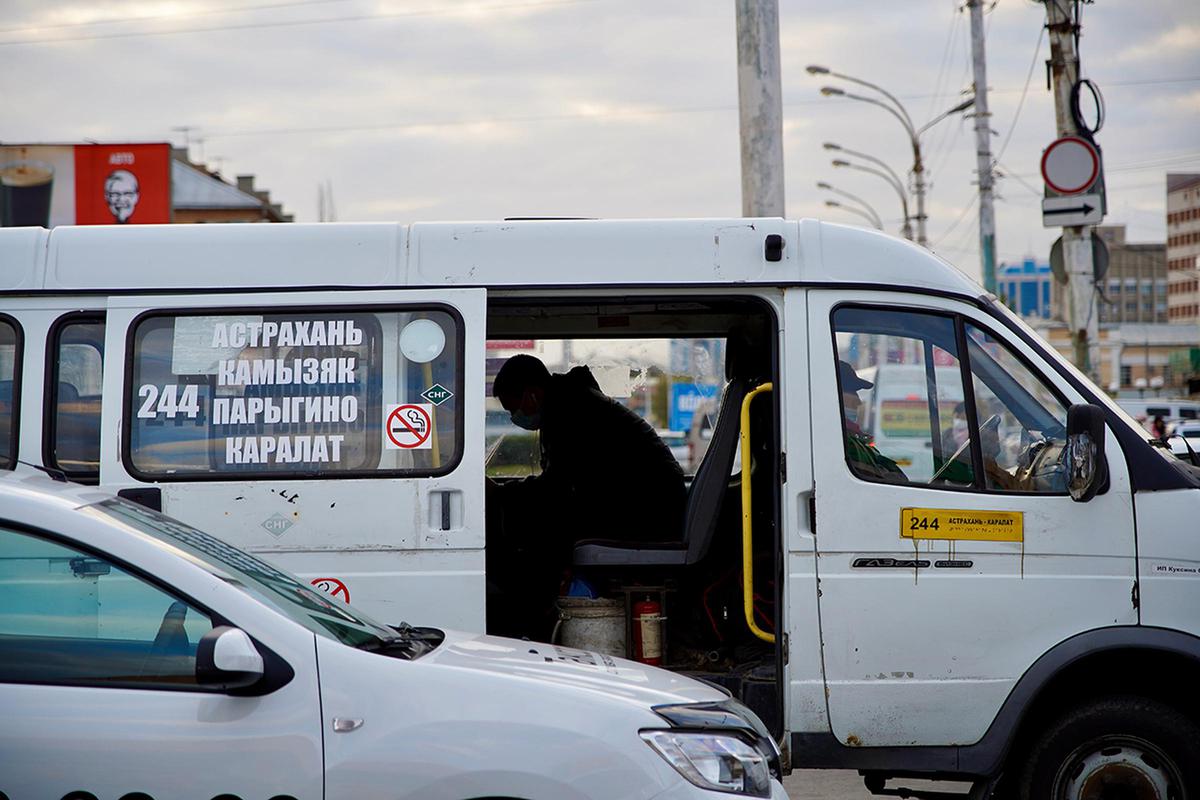
Even local authorities acknowledge the scale of problems with the quality of public transport in the city. This year, the governor of the Astrakhan region and a member of United Russia Igor Babushkin announced: "Astrakhan is waiting for a transport reform." However, according to local residents, they have been hearing such promises for ten years. “The transport reform has started, and for the fourth time already, transport documents, planning documents are being created. For at least ten years, they were ordered differently each time, from different organizations. But so far, this has not brought real changes, which Astrakhan people could see. That is, once again we are waiting for the so-called revival of the Astrakhan transport. We’ve been hoping and waiting for many years, ” – says urbanist Anton Averin.
Some Astrakhan residents, such as Sergei Shtokolov, tried to draw the attention of the federal authorities to the problem of local transport with the help of pickets and appeals to the Chairman of the State Duma Vyacheslav Volodin and the head of the Federation Council Valentina Matvienko. “There is simply nowhere to complain, everything is useless. A complete mess, and no one needs it, everything is on its own. We will probably switch from marshrutkas to rickshaws (a carriage for transporting people, which is pulled by a person holding on to the shafts. – Ed. Note). The stages are as follows: there was a bus, then a marshrutka, a rickshaw, and, then we will probably walk on foot. Well, what’s the other way? – says Sergey. – Putin has not yet been contacted, it has not yet reached him. And how can you get to him? He's a monument! His bunker there is armored, it is useless to address him. "
Editors: Alesya Marokhovskaya, Alexandra Zerkaleva